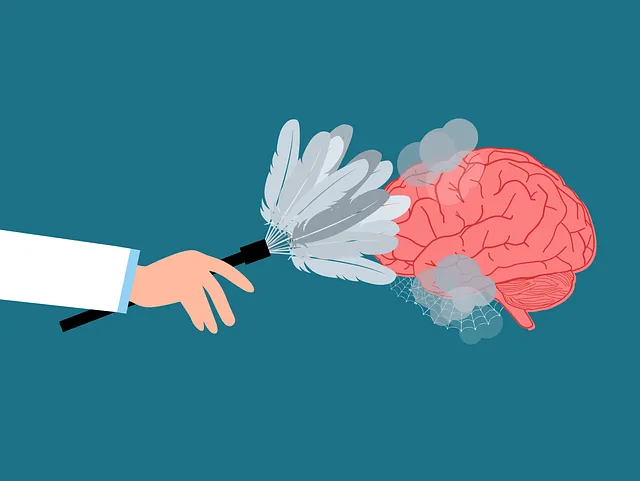Longmont's Kaiser Inpatient Mental Health Services offer critical support for severe disorders, combining medical care with holistic activities. With rising demand for accessible mental wellness coaching, there's a gap in traditional care models. Innovative programs focusing on personalized guidance and compassion cultivation can reduce stress and anxiety. Coaches should assess unique client needs, integrate CBT and mindfulness, use assessment tools to track progress, and tailor plans based on metrics for effective long-term mental wellness.
In today’s fast-paced world, mental wellness coaching programs are gaining prominence as essential tools for navigating the complex landscape of psychological health. With organizations like Kaiser offering inpatient mental health services in Longmont, the demand for accessible and tailored coaching has never been higher. This article explores the development of such programs, from understanding established services to creating effective curricula, integrating evidence-based practices, and measuring success. By delving into these key areas, we aim to highlight the transformative potential of mental wellness coaching.
- Understanding Kaiser's Inpatient Mental Health Services in Longmont
- The Growing Need for Accessible Mental Wellness Coaching Programs
- Designing Customized Coaching Curricula for Diverse Needs
- Integrating Evidence-Based Practices into Coaching Strategies
- Measuring Success: Evaluating the Impact of Mental Wellness Coaching
Understanding Kaiser's Inpatient Mental Health Services in Longmont

In Longmont, Kaiser’s Inpatient Mental Health Services offer a crucial resource for individuals seeking intensive support and stabilization for their mental health concerns. These services cater to a diverse range of needs, from acute psychiatric crises to ongoing treatment for severe mental health disorders. Patients have access to a comprehensive care team including psychiatrists, psychologists, social workers, and nurses who specialize in various therapeutic approaches.
The program’s focus on evidence-based practices ensures that individuals receive the most effective interventions tailored to their unique circumstances. Beyond medical care, Kaiser’s inpatient unit facilitates Mental Wellness Coaching Programs Development by incorporating activities aimed at enhancing coping strategies, building social skills training, and nurturing inner strength development. This holistic approach recognizes that recovery is not just about managing symptoms but also fostering resilience and a sense of well-being for long-term mental health management.
The Growing Need for Accessible Mental Wellness Coaching Programs

In today’s fast-paced world, the demand for accessible and affordable mental wellness coaching programs is on the rise. Issues related to mental health are becoming increasingly prevalent, affecting individuals across all demographics. Longmont, like many other areas, has witnessed a surge in requests for support, particularly with concerns about burnout prevention among professionals and risk assessment for those in high-stress roles. The traditional model of care, often limited by insurance coverage like that offered by Kaiser’s inpatient mental health services, is no longer sufficient to meet the diverse needs of the population. This gap highlights the crucial need for innovative coaching programs that can provide personalized guidance and support without the barriers associated with traditional therapy.
The development of comprehensive mental wellness coaching initiatives, especially in communities like Longmont, should focus on fostering compassion cultivation practices. By making these programs widely available, individuals can gain valuable tools to navigate stress, anxiety, and other mental health challenges. This proactive approach not only benefits the individual but also contributes to a healthier, more resilient community overall, reducing the burden on existing mental health services, including Kaiser’s inpatient facilities.
Designing Customized Coaching Curricula for Diverse Needs

In designing mental wellness coaching programs, one of the key considerations is creating personalized curricula that cater to a diverse range of needs. Every individual has unique challenges and goals when it comes to their mental health journey. Therefore, coaches in Longmont, even those affiliated with Kaiser’s inpatient mental health services, must adapt their approaches. By assessing each client’s specific circumstances, including their background, experiences, and current state of emotional well-being, coaches can develop targeted coaching plans.
This customization involves incorporating various techniques to enhance self-esteem improvement and emotional well-being promotion. For instance, some clients may benefit from mindfulness practices for stress reduction, while others might require skills training in effective communication or conflict resolution. A thorough risk assessment for mental health professionals is also crucial to ensure the safety and efficacy of these programs, particularly when working with vulnerable populations.
Integrating Evidence-Based Practices into Coaching Strategies

In today’s world, where mental health awareness is rising, integrating evidence-based practices into coaching strategies is paramount for effectiveness. Longmont’s Kaiser, for instance, offers comprehensive inpatient mental health services, highlighting the importance of professional integration within healthcare systems. Coaches can leverage techniques such as cognitive-behavioral therapy (CBT), mindfulness practices, and stress management skills to empower individuals in their personal growth journeys.
The development of mental wellness coaching programs should focus on evidence-based methodologies to ensure positive outcomes. Mental health podcasts and online series production have played a significant role in spreading awareness and offering valuable insights. By combining these resources with coaching, professionals can address burnout prevention, providing clients with practical tools and strategies for maintaining mental wellness.
Measuring Success: Evaluating the Impact of Mental Wellness Coaching

Measuring success in mental wellness coaching is paramount to understanding the program’s impact and effectiveness. It involves a multifaceted approach that goes beyond simple satisfaction surveys. By integrating various assessment tools, coaches can gain valuable insights into clients’ progress, such as self-esteem improvement, anxiety relief, and overall psychological well-being. These assessments could range from standardized questionnaires to qualitative feedback sessions, allowing for a comprehensive evaluation.
For instance, in the context of Longmont’s Kaiser inpatient mental health services, success metrics might include reductions in symptoms of depression or anxiety, improved coping strategies, and enhanced life satisfaction. Compassion cultivation practices have been shown to foster positive outcomes, thereby serving as a key indicator of coaching effectiveness. Regularly reviewing these metrics ensures that coaches can tailor their approaches, making necessary adjustments to better support clients’ mental wellness journeys.
Mental wellness coaching programs are evolving to meet the growing demand for accessible support. By understanding existing services like Kaiser’s inpatient mental health offerings in Longmont, designing tailored curricula, integrating evidence-based practices, and measuring success through evaluation, these programs can significantly enhance individual well-being. This comprehensive approach ensures that mental wellness coaching becomes a powerful tool in navigating life’s challenges, offering a transformative path to improved mental health outcomes.






